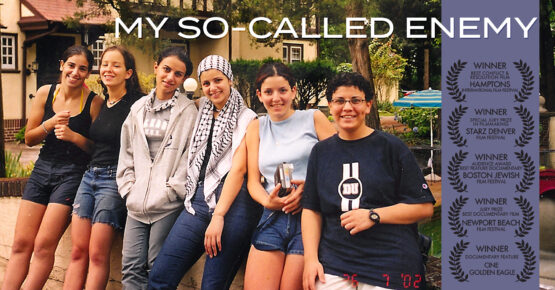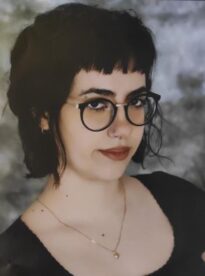Movie Review
“My So-Called Enemy”
Author: Sofia Matovska
My So-Called Enemy is a powerful documentary that follows the lives of six young women from Israel and Palestine as they attend a leadership program in the United States. The film is a poignant exploration of the complexities of the Israeli-Palestinian conflict and the human stories that are often overlooked in the media.

My So-Called Enemy is a powerful documentary that follows the lives of six young women from Israel and Palestine as they attend a leadership program in the United States. The film is a poignant exploration of the complexities of the Israeli-Palestinian conflict and the human stories that are often overlooked in the media.
The film opens with footage of the girls arriving in the U.S., full of hope and excitement for the program ahead. We quickly learn that these girls come from vastly different backgrounds – some are Israeli, some are Palestinian, and they have grown up with vastly different experiences and worldviews. Yet, despite the animosity and hatred that exists between their communities, they are all eager to meet one another and to learn about each other’s lives. As the program gets underway, we see the girls engage in a series of workshops and discussions aimed at fostering leadership skills and cross-cultural understanding. It is through these interactions that we begin to see the girls’ preconceptions and biases start to break down. They start to see each other as individuals rather than representatives of their communities. They bond over shared interests and experiences, and they begin to develop a genuine affection for one another. However, the program is not without its challenges. The girls face resistance and backlash from their families and communities back home, who see their participation in the program as a betrayal of their people. Some of the girls are even threatened with violence. These challenges test their resolve and force them to confront the difficult reality they are desperately trying to overcome.
One of the most compelling aspects of My So-Called Enemy is the way it humanizes the conflict by focusing on the stories of these young women. We see how their experiences have shaped their worldviews and how they struggle with the idea of challenging the beliefs they have held their entire lives. We also see how they grapple with their identity as both individuals and members of their respective communities. The documentary is expertly crafted, with a compelling narrative that keeps the viewer engaged from start to finish. Using this film as a tool for social activism, director Lisa Gossels does an excellent job of balancing the personal stories of the girls with the larger political context. She also makes effective use of archival footage and interviews with experts to provide historical and cultural context. And as documentaries (as a genre) usually go, this one again bears the testimony of the real-life happenings in between wars, and in doing so, providing a healing process for the victims. Through it, we are given a rare glimpse into their personal stories and let into a world far different from ours. Another strength of the film is the way it challenges simplistic and reductive narratives. It shows that there is no easy solution to the Israeli-Palestinian conflict and that it is important to understand the complexities and nuances of the situation. It also challenges the idea that one side is inherently right or wrong, showing that both Israelis and Palestinians are capable of empathy and understanding.
Heart-warming and heart-breaking, I thoroughly enjoyed My So-Called Enemy. I think the way it successfully highlighted the importance of dialogue and compassion in overcoming differences and building bridges is forever going to stick with me.
About the author:
Sofija Matovska
Age: 18
Country: North Macedonia
City: Skopje
School: Orce Nikolov
Juror in Giffoni Macedonia: 2017, 2019, 2021, 2022

Do you want to be a part of the EPYC Blog?
The EPYC blog is a space where all young people can share their thoughts on topics related to the peacebuilding power of film and arts in general
Use the form to aplly for your EPYC space!
Tell us who you are and what you want to write about.
If your idea is alined with the vision of the EPYC blog, our team will contact you.
The EPYC Blog is curated and edited by Idea Artis.
Chief Editor: Stefan Mitikj
The views and opinions expressed by the posts within The EPYC Blog are those of the authors and do not necessarily reflect the official policy or position of Giffoni Macedonia Youth Film Festival and the EPYC project. Any content provided by our bloggers or authors are of their opinion and are not intended to malign any religion, ethnic group, club, organization, company, individual or idea/opinion.
The EPYC Blog does not participate in any type of affiliation program. Any link to third part content, including adds and promotional contents, is meant for informational purposes only.
